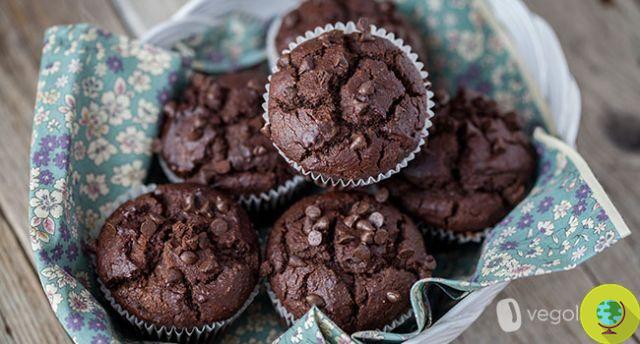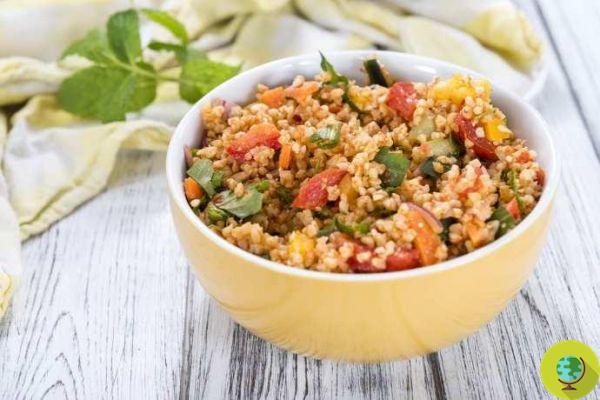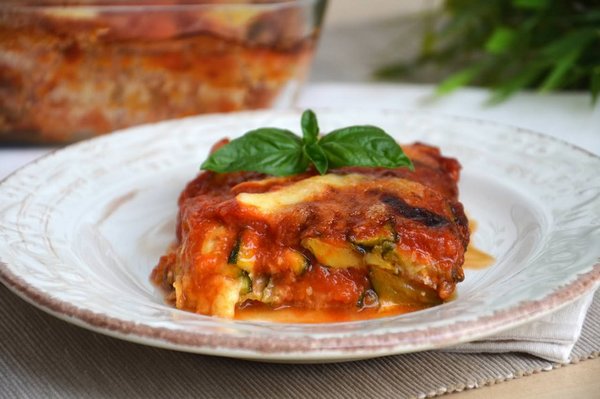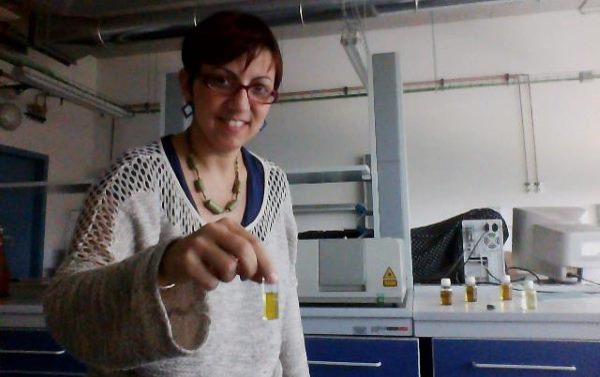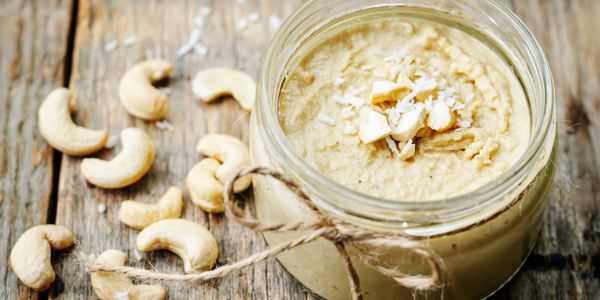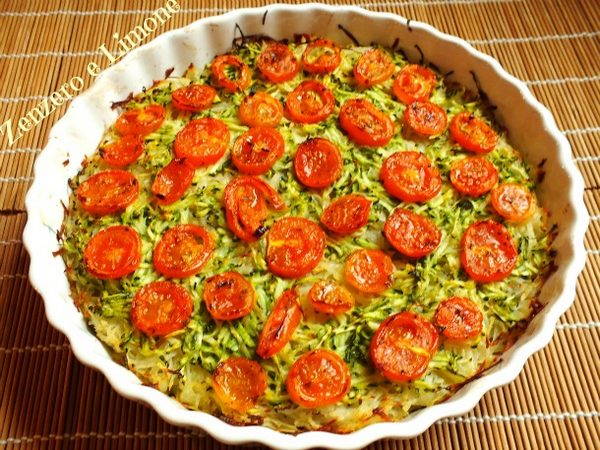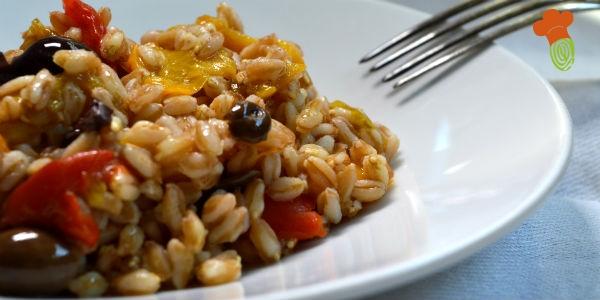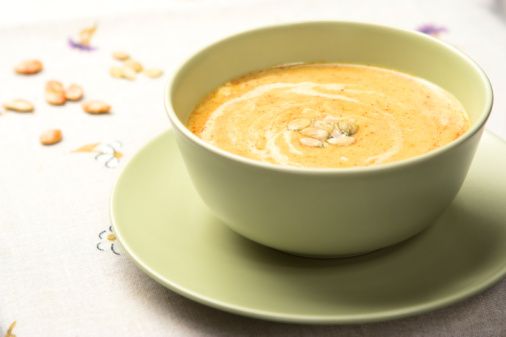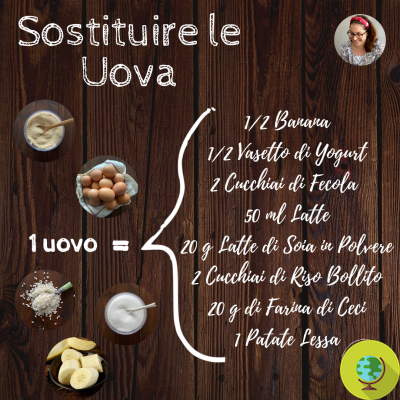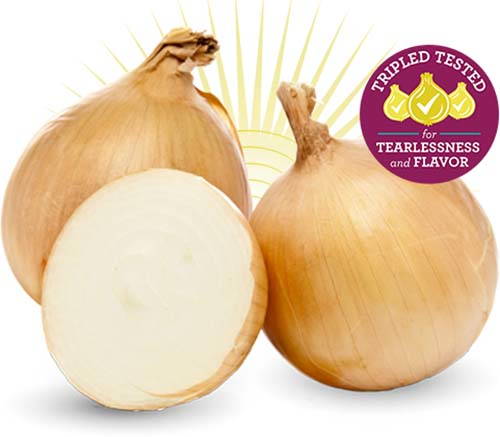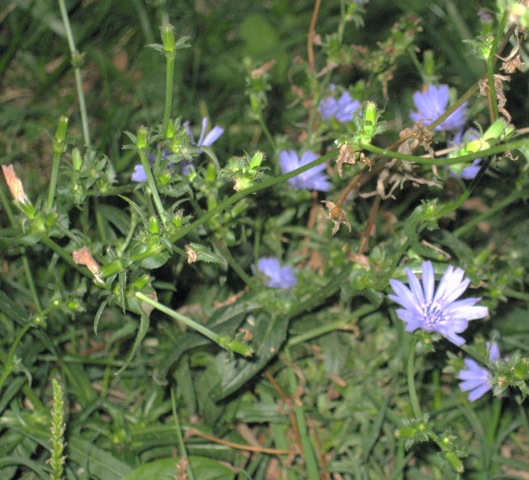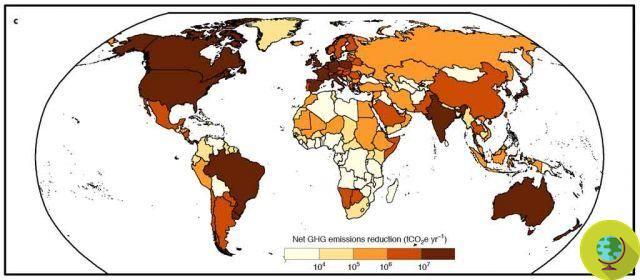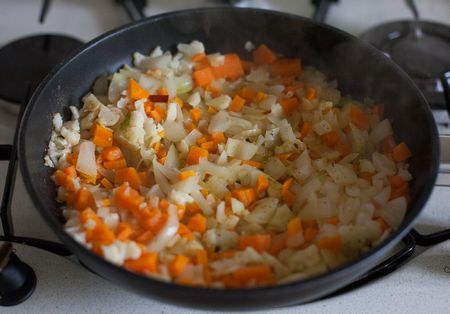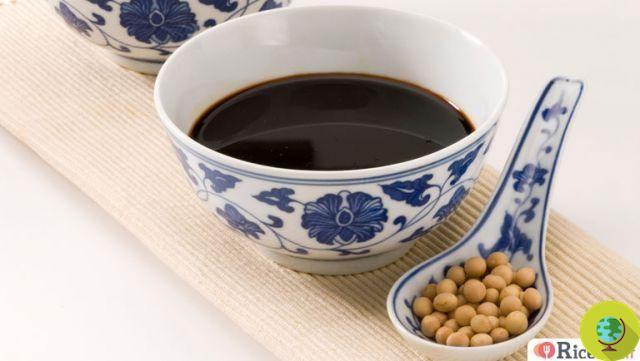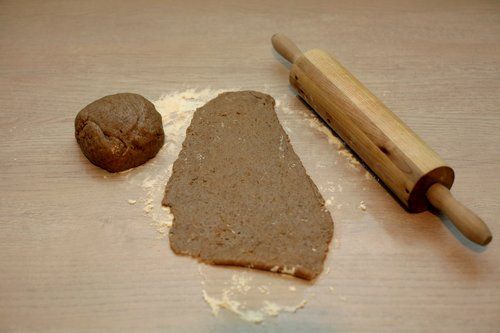Papaya, a tropical fruit with unexpected properties! Discover them all and how to best consume papaya to increase the benefits
Don't store avocado like this: it's dangerousWhen we think of papaya Exotic sceneries, palm trees, sun and sea immediately come to mind. It is certainly not a zero-kilometer product but we still want to talk about property and nutritional values of this fruit
La papaya has an elongated shape, it is a lot rich in water and presents one orange pulp in which there are black seeds rich in mucilage. The outside is yellow-green or reddish depending on the degree of ripeness at which the fruit has reached. It can then be of different size and even weigh a lot (up to 10 kg).
Papaya is typical of tropical countries as it needs warm and humid climates to grow at its best. Given its palatable flavor, however, it is now available to buy all over the world even if the crops are still limited to some countries today (the plant does not adapt well elsewhere).
Let's now discover the benefits that the consumption of papaya offers.
Index
Properties of Papaya
The properties of the papaya are numerous. Among the beneficial substances contained in this fruit is papain, an enzyme that seems to be a real cure-all for digestive problems (it helps in particular the digestion of proteins) and more generally for the gastro-intestinal system. The fibers present in this fruit are also very useful for the intestine as they favor its regularity. Among other things, according to some studies, it is precisely the fibers present in the papaya that offer protection against the appearance of colon cancer.
Papaya is also a fruit with antioxidant active ingredients and therefore protects the body from damage caused by free radicals, avoiding cell aging and the appearance of cardiovascular diseases. For this reason, there are those who consider it a powerful anti-aging and take it to exploit its beneficial effect in the form of a supplement (we will also talk about fermented papaya below).
Papaya is also ally of the heart and cardiovascular system generally as it avoids cholesterol deposits and reduces the so-called bad LDL.
According to a study carried out in Pakistan, papaya also offers many other benefits to those who take it. They would be in particular the black seeds to have the most interesting properties as they are rich in antioxidants (flavonoids and polyphenols) capable of preventing kidney problems and above all regulating the intestinal flora and eliminating worms.
The beneficial combination of all the substances and active ingredients present in papaya make it a leading fruit in reduce the risk of contracting diseases such as cancer, hypertension, diabetes but also useful for those who want to lose weight, improve their eyesight, solve acne problems, strengthen the immune system and even improve fertility, both male and female.
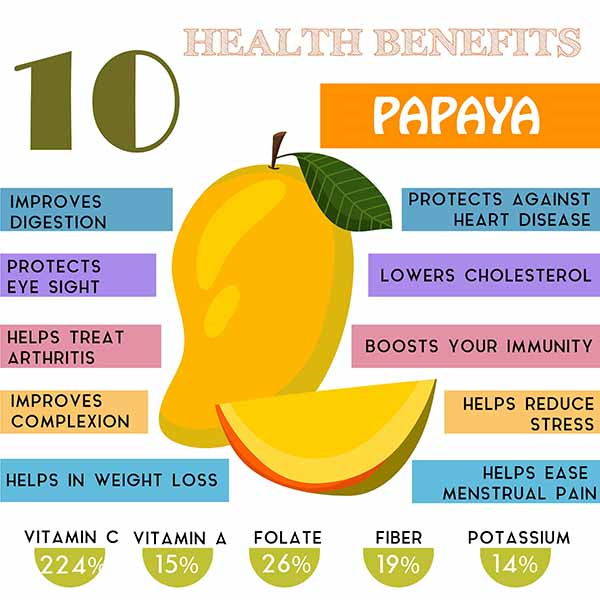
So to recap the papaya:
• Helps digestive functions (especially proteins)
• Promotes intestinal regularity
• Prevents colon cancer
• Prevents hypertension and diabetes
• Prevents cardiovascular diseases
• It is anti-aging
• Helps to lose weight
• Improve eyesight
• Helps with acne
• Improve male and female fertility
• Strengthens the immune system
Calories from papaya
Papaya is a fruit that does not provide many calories, according to Inran 1 data00 grams of fruit (edible part) give our body 28 kcal.
Nutritional Values of Papaya
Papaya is a Dai fruit very interesting nutritional values. In addition to being very rich in water, it contains vitamin A, folic acid (vitamin B9), vitamin E, vitamin K and above all vitamin C (a portion of 100 g contains 60 mg, i.e. about 180 mg for each medium-sized papaya). Instead, among the mineral salts they stand out potassium, calcium, phosphorus and magnesium.
Like all foods of plant origin, even papaya it does not contain cholesterol and among other things, as we have already said above, it also contributes to keeping it within the norm. Let's not forget that papaya is one source of carotenoids.
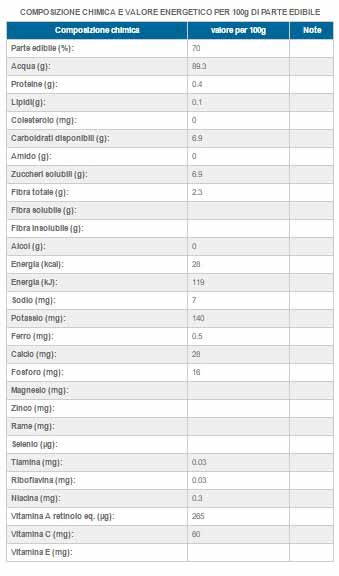
Photo source: Nutritional Tables CREA
In summary, papaya contains:
• Vitamin A
• Vitamin C
• Vitamin E
• Vitamina K
• Folic acid
• Potassium
• Soccer
• Phosphorus
• Magnesium
How to choose a Papaya
Although there is a time of year when the papaya tree produces the most fruit, in our supermarkets, exotic shops or markets, papaya is available all year round. However, care must be taken when buying to avoid buying an inedible fruit.
Keep in mind that if the outer part tends to orange and reddish and when touching it with the fingers it appears slightly soft, the papaya is in a good state of ripeness and should be consumed within a few days. If, on the other hand, it appears green but with yellow spots, it takes a few more days (it must be left at room temperature and not put in the fridge) before it can be consumed. Therefore, depending on when you intend to eat it, you can choose one or the other. The one that is completely green and very hard to the touch should be avoided because it is too unripe from the tree.
To recap a ripe papaya:
• It is thereslightly soft to the touch (you must not sink with your finger)
• Has a yellow and reddish (not green) outer part
• It should be consumed within a few days
An unripe papaya, on the other hand:
• It should be left to mature for a few days out of the refrigerator
Contraindications of the fruit
The consumption of papaya has no particular contraindications except for the possible hypersensitivity to the fruit also due to the presence of latex (to be avoided if you are allergic to this substance). Papaya, if too unripe, is not recommended for pregnant women as it is rich in papain which can induce contractions.
Eat if you eat Papaya
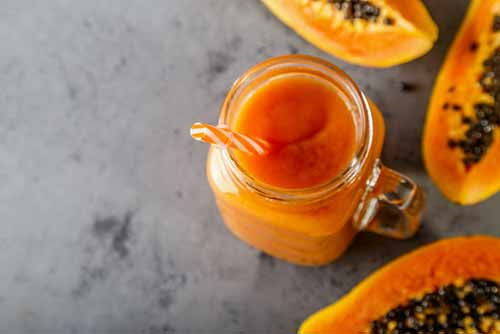
The ripe fruit of the papaya must first be peeled then it can be cut into pieces and consumed as is or added to a fruit salad, used to make smoothies, extracts, desserts, ice creams and many recipes (including savory ones such as papaya salad or papaya risotto).
You can also consume i fruit seedsor, even if they are much less palatable than the juicy and sweet pulp of papaya. As we said above, however, they do very well!
Dried Papaya
At the supermarket, in natural food stores or at the market at stalls selling loose nuts, olives, lupins, etc. dried papaya can be found. It makes a great mid-morning and mid-afternoon snack. The natural sugars contained in fruit can give us the right energy for our activities and the fibers can instead contribute to the well-being of our intestine. But as in all things we must not exaggerate (also because the sugar load in the case of dried fruit increases) and it is always very important to pay attention to what you buy. If we self-produce dried fruit at home there are no problems, but we must instead be careful in case we buy ready-made products. For some advice on buying papaya or other dried fruit, read here.
Read also: DRIED FRUIT: NOT ALWAYS BENEFIT, HERE ARE 3 THINGS TO BE CAREFUL
Papaya fermented
For some years now, the fermented papaya based supplements, extracts from the well-known tropical fruit fermented with the use of alcohol for several months. Thanks to this process, the antioxidant properties of papaya increase and are able to help the body fight free radicals more easily. Furthermore, the presence of vitamins of group B, C, E and mineral salts make it an excellent energizing and immunostimulating product which among other things, containing papain, helps to alkalize the body and has a digestive action. However, not everyone agrees on the real benefits of this supplement and even the studies on it have not always reached the same conclusions.
Read also: 10 NATURAL AND EFFECTIVE SUPPLEMENTS
Curiosities about Papaya
The small black seeds of the papaya they were used in ancient times in the countries of origin of the fruit such as natural contraceptives. We obviously advise against trying this remedy!
About papaya or papaya you may also be interested in:
- Fermented papaya: properties, benefits, contraindications and where to find it
- Avocado, pineapple, papaya: fruit (and vegetables) with LESS pesticides





